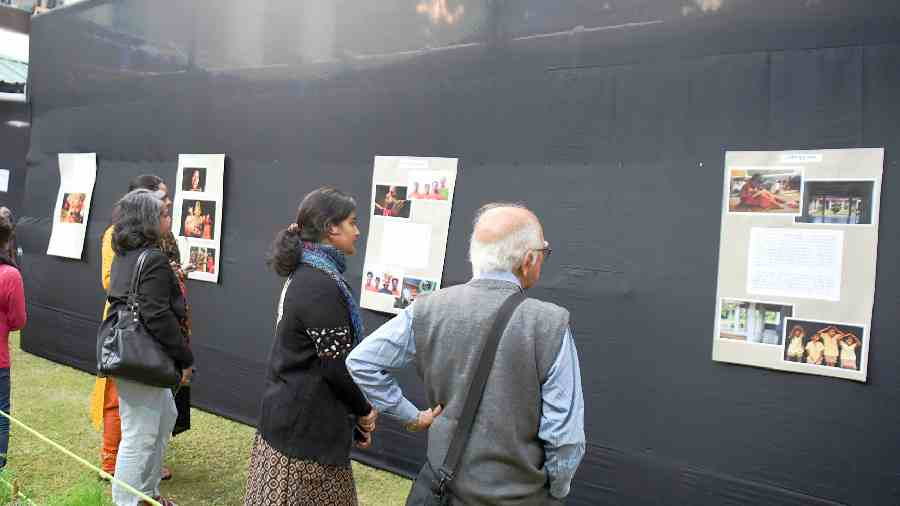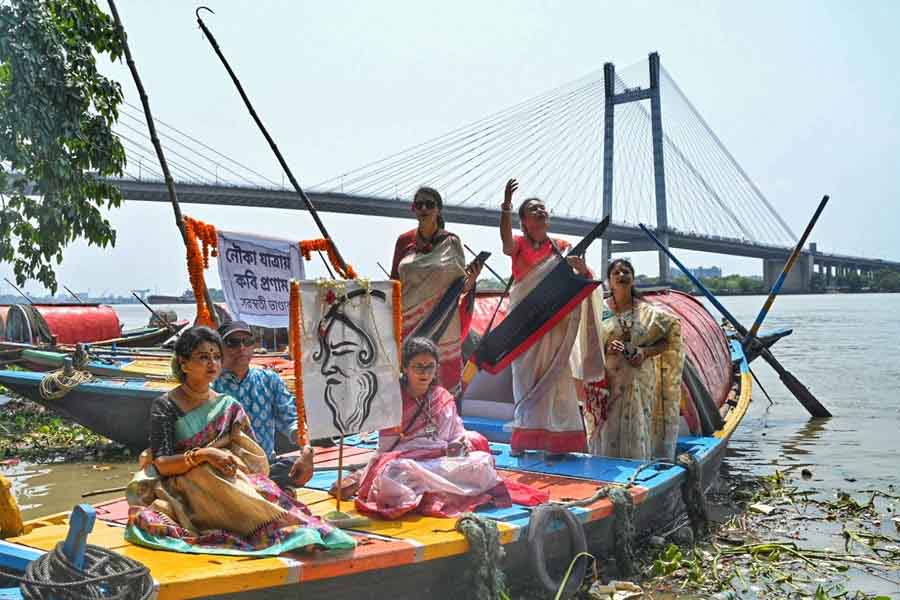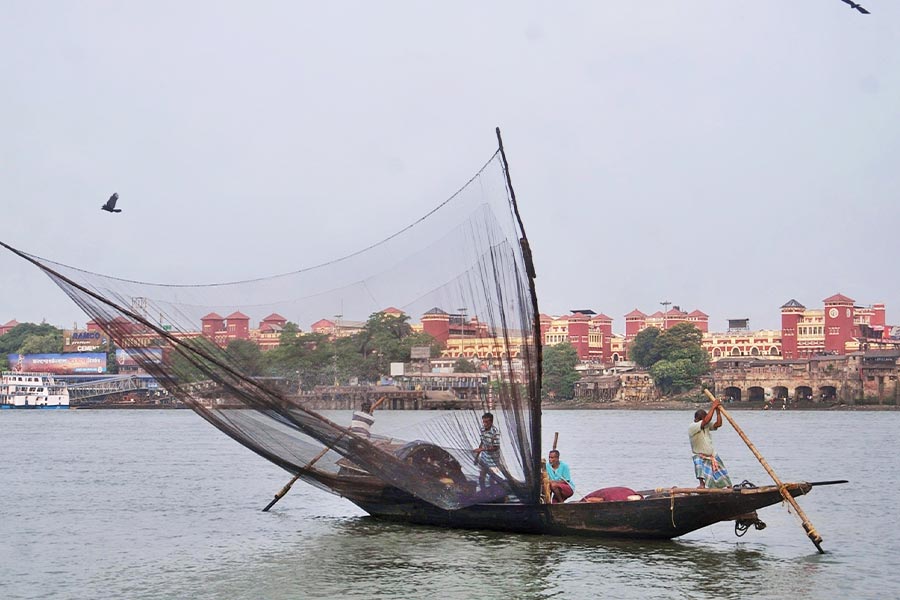A centuries-old, open-air ensemble theatrical tradition of Tamil Nadu that has forever been a male bastion is gradually opening its doors to women.
A Kattaikkuttu troupe that has smashed the glass ceiling is visiting Kolkata for an exhibition — which has documented the entry of women — and a couple of performances.
Kattaikkuttu, usually held in villages, is synonymous with songs, elaborate make-up and costumes. Typically, a play involves a night-long narrative, usually based on the Mahabharata.
In Tamil, kuttu means theatre and kattai are the wooden ornaments worn by the royal characters.
The colourful visual appearance of the characters and their high energy are the highlights of Kattaikkuttu. A two-day exhibition — starting Tuesday — on the lawns of the Victoria Memorial showcases the efforts of the Kattaikkuttu Sangam of Kanchipuram, Tamil Nadu.
Sangam is the first institution in over three centuries of tradition of Kuttu practice to train and introduce female performers to the tradition. Kattaikkuttu actor, director and playwright Perungattur P. Rajagopal, his wife and theatre scholar Hanne de Bruin and a handful of performers from Sangam reached Kolkata on Tuesday.
Besides the exhibition, the troupe is also slated to stage a couple of shows in the city. In 1990, Rajagopal and de Bruin, with a handful of other musicians, founded the Sangam, a grassroots association of professional Kuttu performers.
Sangam’s ground-breaking project, the Kattaikkuttu Gurukulam, started in 2002. Since its inception, young performers of all genders have been receiving formal education along with Kuttu training at the residential school.
It was only in 2022, after 20 years of resilient practice, that one could finally witness an unprecedented phenomenon of female performers being hired in professional Kuttu companies outside the Sangam repertory.
“Kattaikkuttu used to be an all-male theatre form. With the establishment of the Gurukulam, training and performances have become accessible to girls and young women too,” de Bruin told this newspaper on Tuesday afternoon, hours before boarding a Kolkata-bound flight.
The first batch of 2002 had three girls out of some 25 entrants. By 2019, out of some 50 fresh entrants, 25 were girls, she said. Fresh entrants have to be six-years or older.
“There has been resistance. Several girls were taken away from the Gurukulam after they entered their teens because their families did not want mature women to be subjected to male gaze. But several girls stayed back and stayed put, culminating in where we are today,” said de Bruin.
The exhibition at the Victoria Memorial is a collaboration between the Sangam and Birati Samuho Performers’ Collective, a Kolkata-based “queer and women-centric” theatre collective. As a “folk” theatre, Kattaikkuttu enjoys little social standing and respect. Educated, urban people consider Kattaikkuttu lacking the sophistication of classical music and dance, said de Bruin.
“Kattaikkuttu performances are booked and paid for by ordinary rural people. Night-long performances are integral to a rural, agrarian culture that celebrates the planting of new crops, the coming of the monsoon and the end of the harvest through seasonal, religious festivals. Performances are put on to ensure the well-being of the entire village community,” says the Sangam website.
Barring Rajagopal and de Bruin, the troupe visiting Calcutta comprises five women and one man. R. Mahalakshmi, 26, is one of its members. She joined the Gurukulam in 2003.
“My father was a musician. He played the drums. He always encouraged me to pursue Kuttu,” said Mahalakshmi.
She is married to a fellow Kuttu artiste, Moorthy Palani, the only male performer in the troupe.
“My immediate in-laws have no problem but in the larger family, several members want me to leave Kuttu,” she said. In Kolkata, the troupe will stage a new play, Tavam, written by Rajagopal.
“I am very happy to bring Kattaikkuttu to theatre-living Kolkata. I believe that all performing art forms are equally valid and should be accessible to all,” he told The Telegraph.






